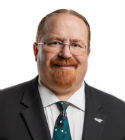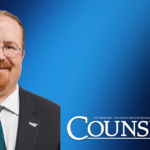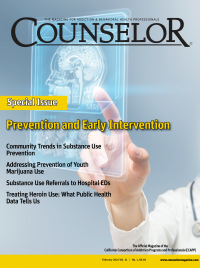Share
Historically, prevention activities have been seen as the early off-ramp for potential addictive behavior. It has been seen as the circuit breaker to the development of addiction; the promise of a life unaffected by abuse of substances. The philosophy that people could be insulated or inoculated from addiction makes sense to policymakers and the public, both of whom are ready to save our youth from the “scourge of addiction.” This philosophy is an upstream prevention approach, but does not take into account the need to provide prevention from relapse. While upstream measures are effective for many, by viewing it through such a narrow lens we may be limiting the effectiveness of prevention as it pertains to ongoing recovery for those that primary prevention was not effective for.
As professionals and providers, we have advocated long and hard on behalf of our clients to end the debilitating impacts of stigma. We have said for decades that addiction is a community disease that will take recovery-friendly communities to address. So why are we not creating a prevention continuum that begins from birth and is present until death for those who use substances and those who do not? In my opinion, our society is undergoing a monumental sea change in the way it views addiction. The complex precursors of addiction, combined with an even more complex treatment system and unknown futures for people in recovery, demand that we expand the definition and scope of prevention.
Prevention is fluid. It involves supporting those who are at risk and those with inadequate knowledge of the treatment process. Risk factors involved in the development of addiction are multigenerational, meaning that children in homes experiencing addiction cannot truly consume prevention efforts while their families are in the midst of untreated addiction. It means that, because addiction is a chronic disease with a high probability of relapse, relapse prevention must also be a strong element of any prevention strategy.
As lines between treatment, education, and prevention begin to blur, many will seek to retreat to silos and safeguard resources. As a leader in a state experiencing the blending of these three elements (as well as the integration of mental and physical health), my attitude is focused on opportunity, not fear. We have asked that addiction be viewed as a public health issue, not a moral failing. If society is ready to move forward and support attacking addictions development and devastating effects from cradle to grave, I am ready to assist with a collaborative spirit to develop new opportunities and to open the tent to all who take up our cause.
One of the most effective prevention methods is to treat adults who are addicted, because as we treat these adults, we are seeking to prevent the cycle for the next generation. As we provide safe places for children and families at risk at our schools and daycare centers, we open up opportunities for overwhelmed parents to seek help. As we join our colleagues in mental health who try to treat the whole person, the sum of the parts grows; it does not shrink. Prevention, in all its forms, should seek to reduce stigma, draw in individuals and communities to support those in recovery, and address all aspects of an environment that may encourage or discourage substance use and a desire to access care when substance use disorder occurs.
About Me
Pete Nielsen is the President & Chief Executive Officer for the California Consortium of Addiction Programs and Professionals (CCAPP), CCAPP Credentialing, CCAPP Education Institute, and the National Behavioral Health Association of Providers (NBHAP). CCAPP is the largest statewide consortium of addiction programs and professionals, and the only one representing all modalities of substance use disorder treatment programs. NBHAP is the leading and unifying voice of addiction-focused treatment programs nationally. Mr. Nielsen has worked in the substance use disorders field for 20 years. In addition to association management, he brings to the table experience as an interventionist, family recovery specialist, counselor, administrator, and educator, with positions including campus director, academic dean, and instructor.
Mr. Nielsen is the secretary of the International Certification and Reciprocity Consortium and the publisher for Counselor magazine. He is a nationally known speaker and writer published in numerous industry-specific magazines. Mr. Nielsen holds a Master of Science in Counseling Psychology and a Bachelor of Science in Business Management.












 Counselor Magazine is the official publication of the California Association of Addiction Programs and Professionals (CCAPP). Counselor offers online continuing education, article archives, subscription deals, and article submission guidelines. It has been serving the addiction field for more than thirty years.
Counselor Magazine is the official publication of the California Association of Addiction Programs and Professionals (CCAPP). Counselor offers online continuing education, article archives, subscription deals, and article submission guidelines. It has been serving the addiction field for more than thirty years.